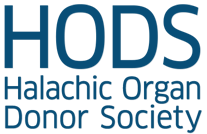HODS Rabbis & Physicians Seminar
Rabbi Tzvi Flaum
HODS Rabbis & Physicians Seminar
Albert Einstein College of Medicine
[4 minutes 6 seconds]
TRANSCRIPTION OF VIDEO
Audience Member:
I have a question that I think some of us have discussed in the last couple of days.
Rabbi Flaum:
Let me hear.
Audience Member:
From an ethical point of view
Rabbi Flaum:
Yah.
Audience Member:
Yesterday in the discussion with some of the professionals from the New York Organ Donation program, the question was asked whether in the process of heart transplants, for example, whether the organs are removed from the donor before a match is found for the recipient. We were told explicitly that’s not what they do and that the organs are not removed from the donor until a match is found and everything is prepared so that the surgery for the donor patient is placed immediately prior to – for the specific purpose of – the surgery of the recipient.
Rabbi Flaum:
Right
Audience Member:
If we take a position that cardiac… sorry, if we take the position that brain stem death is not death . . .
Rabbi Flaum:
Where it says “Safek safek shvichas damim [there is a question of shedding blood].”
Audience Member:
then on what basis can the recipient receive …
Rabbi Flaum:
Excellent question…
Audience Member:
a heart from somebody whose heart is being removed from that person for the specific purpose of being given to you?
Rabbi Flaum:
Excellent question. If you’ve ever noticed, I mean I always see this enigma, that everybody from Israel is sent to America for transplants. When it comes to sending, all the big Rebbes and the Rabbanim – you go to America for transplants, don’t do it in Israel. And I always wondered why? I found two different Gedolim who gave their terutzim [explanations] to this. One – Rav Ahron Soloveichik z”l and one -Baruch Chaim -Rabbi Bleich, in one of his Hebrew tshuvos [responsa]. And they both came to the same conclusion. But once again, what you’re telling me is an insight because that’s not what they were of the opinion. Both of these Gedolim say, the problem you’re referring to is – if you’re a recipient of a transplant and it’s being matched one-to-one, then you’re violating the issur lo lifnei eevar tasim michshol [prohibition of not putting a stumbling block before a blind person]. If you say this is murder, you’re asking somebody to be murdered to save your life. And therefore it’s a violation of a lav d’oraisah, of lo lifnei eever tasim michshol [negative law from G-d not to put a stumbling block before a blind person]… and if that’s the medical metzius [situation] that would therefore prohibit you to be – have the right to – put your name on the list to be a recipient, of that there’s no question. And that was the assumption in Eretz Yisroel that since there is (sic) so few over there, it’s really, they were of the assumption – Eretz Yisroel was personalized, but in America, they said – this is what they wrote in their articles. If you want to tell me it’s not true but this is what they wrote in their articles as a preliminary …
What? What’s that?
Audience Member:
Rabbi Flaum, I just want to elaborate on the fact that there are a number of people in this room of who are from the religious and Jewish and some who are not Jewish in the room.
Rabbi Flaum:
Ok. Ok. Alright. Now. Thank you. What I want to therefore mention is that when Rabbi Bleich and Rabbi Soloveichik both gave their permissibility to be a recipient in America they were under the supposition, and they write this in their works, that the organs are harvested irrelevant of who the recipient is because you have more recipients than donors and you’re put on a list and therefore, if that’s the case, putting your name on a list is not a guarantee you’ll ever receive the organ because there can be hundreds of people who are put on the list. It might be at the end that you are the genetic match or whatever, but that’s not known when you put your name on the list. If that’s the case the organs are going to be harvested whether you put your name on the list or not; therefore since the organs are available and you didn’t cause them to be taken out, you can be a recipient of it – that’s their assumption. If you’re telling me that’s not the way it works medically, then we’ve got a problem.
